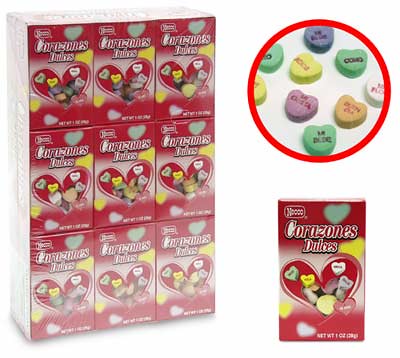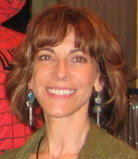Wednesday, February 16, 2005
Don't forget to sing in the box especified for the foreigner
"Don't forget to sing in the box especified for the foreigner."
I had to laugh; it brought a great visual to my mind. But then I also realized, who among us has not made an embarrassing slip of the tongue in our own language, let alone in a foreign language?
I have certainly had more than my share of foreign language faux pas. And it runs in the family, too. My cousin is famous in our family for asking a waiter in Rome at breakfast for preservativi. She thought she was asking for preserves, or jam, for her toast. In reality, she was asking for condoms..... the flabbergasted waiter took her by the arm, led her to the door, pointed across the street and said quite firmly, "Signorina, la famacia é lá!" She also had a hard time understanding why the porters at Fiumicino Airport were all giving her dirty looks -- until she realized that instead of calling them facchino, or porter, she had been using the word tacchino -- turkey.
It's all part of the learning process, and we really do learn more from our mistakes. But I still like the thought of singing in the box especified for the foreigner -- it sounds like so much more fun than just signing on the dotted line!
Saturday, February 12, 2005
Corazones Dulces
Sweet Hearts in Spanish! I love them! Beso, Te Amo, Linda, Todo Mío, Mi Vida, Dulce...these are so much fun. My K-5 Spanish students love them, too, although we live in such a politically correct town that I usually have the kids glue them on Valentines cards they make in Spanish for their families, rather than eat them... although I don't count how many actually get glued on the cards!
It's nice to see that some traditions haven't changed from when I was a kid; the students (at least up to 3rd grade) still bring in those little dime store Valentines and put them in little hand-made mailboxes posted around the classroom. Is this a tradition in Latin American cultures as well? What kinds of things did you do for Valentine's Day when you were young, and what kinds of things do people do now? Speaking of which, do you call it El Día de San Valentín or El Día de Los Enamorados?
No matter what you call it, Happy Valentine's Day, Feliz Día de San Valentín and Feliz Día de Los Enamorados a todos!
Saturday, February 05, 2005
Spanish is the language of the soul
For me, the most poetic and most romantic language of all is Spanish. I know many people would disagree – Italian is commonly thought of as the most romantic language – but even though Italian is beautiful, to me it just doesn't have the same depth of soul. Perhaps the difference is that Italian's romantic beauty is more intellectual in a way, whereas Spanish carries with it the sense of earthiness, longing and desire.
A few months ago, I came across this wonderful quote by Carlos Fuentes, who (not surprisingly) feels the same way. He was speaking at the Third World Congress of the Spanish Language:
"Posiblemente el inglés sea más práctico que el castellano. El alemán más profundo. El francés, más elegante. El italiano, más gracioso. Y el ruso, más angustioso. Pero yo creo profundamente que es la lengua española la que con mayor elocuencia y belleza nos da el repertorio más amplio del alma humana, de la personalidad individual y de su proyección social".
"No hay lengua más consonante y más vocal. Escribimos como decimos y decimos como escribimos. ¿Y qué decimos? ¿Qué hablamos? ¿Qué escribimos? Nada menos que el diccionario universal de las pasiones, las dudas, las aspiraciones que nos comunica con nosotros mismos, con los otros hombres y mujeres, con nuestras comunidades, con el mundo."
Translation, with apologies in advance to Mr. Fuentes for any errors in vocabulary or nuance:
"Maybe English is more practical than Spanish. German, deeper. French, more elegant. Italian, more gracious. And Russan, more anguished. But I firmly believe that the Spanish language is the one that with the most eloquence and beauty gives us the broadest range of the human soul, the individual personality, and its social projection.
There is no language more consonant and more vocal. We write the way we speak, and we speak the way we write. And what do we say? How do we speak? What do we write? Nothing less than the unversal dictionary of the passions, the doubts, the aspirations that we communicate with ourselves, with other men and women, with our communities, with the world."


